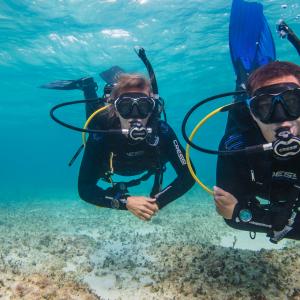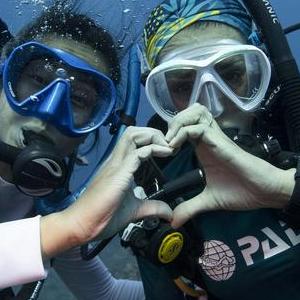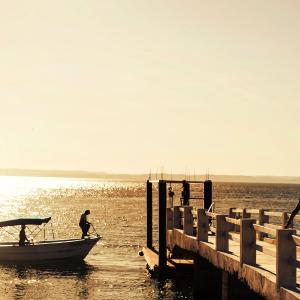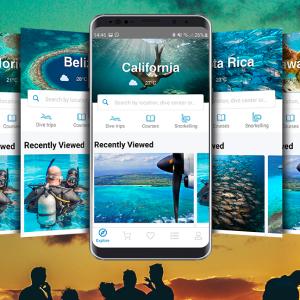The PADI Difference
PADI Divers carry the most respected and sought after scuba diving credentials in the world. No matter where you choose to dive, your PADI certification card will be recognized and accepted. In fact, on most scuba diving adventures, you’ll be surrounded by other PADI Divers who made the same certification choice you did – to train with the world’s largest and most respected scuba diving training organization.
How is PADI Different?
Education - The PADI System of diver education is the most instructionally solid system in diving. PADI courses are designed to make learning enjoyable and worthwhile. Under the guidance of your professional PADI Instructor, you gain confidence while mastering important safety concepts and skills. PADI Instructors are trained and held to diving’s highest standards, backed up by a solid, proactive quality management system.
Performance-Based Learning – You progress at your own pace as you demonstrate mastery of specific performance requirements essential to becoming a scuba diver. You must earn your PADI certification, but you do so in an encouraging and well-supported learning environment.
Educational Materials – Credentialed instructional designers use state-of-the-art technology and learning theories to create PADI materials with you, the student diver, in mind. Independent study materials, available in a variety of media – online programs, tablet-based apps, manuals, workbooks, multimedia discs, etc. – allow you to learn in a way that works for you. Instructional support materials allow your PADI Instructor to further explain important concepts and verify understanding.
Educational Standards – All PADI programs, from entry-level through scuba instructor training, fall under strict educational standards monitored for worldwide consistency and quality. PADI takes a proactive approach to quality management and randomly surveys PADI Divers to confirm their courses meet PADI’s high standards as well as the divers’ expectations. No other diver training organization works to maintain this level of professional reliability and integrity.
Continuing Diver Education – The fun and enjoyment of being a confident scuba diver is fueled by continuing to improve your scuba skills. Each PADI course builds on the previous one, teaching you skills and techniques when you’re ready to learn them. PADI specialty courses let you explore specific dive interests. Professional-level courses let you live the scuba diving lifestyle by becoming a divemaster or scuba instructor.
College Credit and Vocational Training – The unsurpassed quality of PADI materials, and the educational validity of PADI courses, have been independently acknowledged by international educational and vocational training authorities. You may be able to earn college credit for certain PADI courses, or receive vocational training recognition toward national certificates.
International Organization for Standardization (ISO) Standards Compliant – All PADI’s recreational diving courses are certified as compliant with ISO standards for Recreational Diving Services by an independent auditor, the European Underwater Federation and the Austrian Standards Institute. The ISO standards (see chart below) relate to five levels of diver, two levels of instructor and a service provider or dive center. Each of these standards equate to a PADI certification or member level, which means that, in effect, divers or members holding one of these qualifications can also be said to have met the requirements of the relevant ISO standard – as though they had gained two credentials at once.
ISO Title | ISO Reference | PADI Equivalent |
|---|---|---|
Introductory training programs to scuba diving | ISO 11121 | Discover Scuba Diving |
Diver Level 1 - Supervised Diver | ISO 24801-1 | PADI Scuba Diver |
Diver Level 2 - Autonomous Diver | ISO 24801-2 | Open Water Diver |
Diver Level 3 - Diver Leader | ISO 24801-3 | Divemaster |
Training programs on enriched air nitrox diving | ISO 11107 | Enriched Air Diver |
Requirements for training on environmental awareness for recreational divers | ISO 21417 | Project AWARE Diver |
Instructor Level 1 | ISO 24802-1 | Assistant Instructor |
Instructor Level 2 | ISO 24802-2 | Open Water Scuba Instructor |
Recreational scuba diving service providers | ISO 24803 | Dive Center or Resort |
Requirements for rebreather diver training — No-decompression diving | ISO 24804 | PADI Advanced Rebreather Diver |
Requirements for rebreather diver training — Decompression diving to 45 m | ISO 24805 | Tec 40 CCR |
Requirements for rebreather diver training — Decompression diving to 60 m | ISO 24806 | Tec 60 CCR |
Requirements for rebreather diver training — Decompression diving to 100 m | ISO 24807 | Tec 100 CCR |
Requirements for rebreather instructor training | ISO 24808 | The four instructor levels for the above |
Requirements for Gas Blender training programmes | ISO 13293 | TecRec Gas Blender |
Requirements and guidance on environmentally sustainable practices in recreational diving | ISO 21416 | Complies with PADI’s philosophy and recommendations |
Requirements for the training of recreational snorkelling guides | ISO 13970 | PADI Snorkel Guide (or Divemaster with PADI Basic Freediver) |
Professional Quality and Support
Just as scuba divers must earn PADI certifications, PADI Instructors must complete a development program that sets the industry standard for scuba instructor training. Each new PADI Instructor demonstrates a thorough knowledge of the PADI System and the ability to conduct PADI programs by meeting specific criteria. Before earning the PADI Instructor rating, all candidates are evaluated by a select group of PADI-employed Instructor Examiners. This ensures that the evaluation process is objective, fair and consistent worldwide. This is another way that PADI training stands above others in the dive industry.
To help PADI Members grow both personally and professionally, PADI Offices conduct annual seminars that cover various educational, marketing and risk management topics. PADI Members can also attend business development programs and seminars that look at current trends in diving. Retailers and resort operators have access to a variety of business services through the PADI Retail and Resort Associations. Interested in opening a PADI dive shop?
Diving Community
- PADI Club - As a PADI Diver, you become part of the larger PADI community.
Stay Connected - Keep up to date with the latest in diving and underwater adventure with dive travel inspiration, exclusive event invites, and Meetups.
Get Exclusive Discounts - Enjoy 20% OFF select PADI eLearning programs, discounts on lifestyle apparel, FREE ReActivate online refresher course, 25% off a new Certification Card, and more!
Save the Ocean - 5% of every Club membership supports global ocean conservation and marine animal protection through PADI AWARE Foundation™.
- PADI Blog and TecRec Blog – Get the latest PADI dive news and scuba-related discussions by tapping into PADI’s blogs. The TecRec blog focuses specifically on technical diving news and equipment, while the PADI Blog covers recreational diving topics and provides words of wisdom from the Dive GuruTM.
- PADI on Facebook, Twitter, Instagram, TikTok, Pinterest, and YouTube – You can interact with other PADI Divers who share stories, photos, and videos and discuss their passion – scuba diving – through social media sites.
Environmental Responsibility
As a PADI Diver, you join millions of others to form a growing force that can and does make a difference in the effort to preserve the underwater world. PADI courses encompass environmental awareness and protection philosophies that emphasize the importance of protecting fragile aquatic ecosystems. The worldwide PADI organization is committed to preserving the aquatic environment for future generations. Diving won’t survive without beautiful places to visit, and PADI Divers are encouraged to take action with the PADI AWARE FoundationTM and make every dive count for a clean, healthy ocean planet.

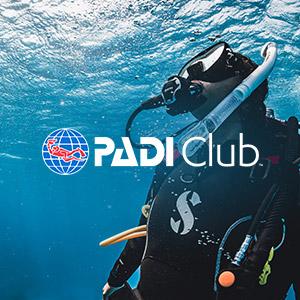
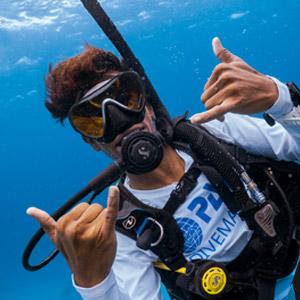

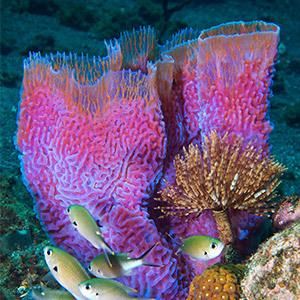
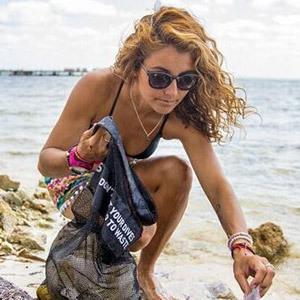

 Marine Debris
Marine Debris
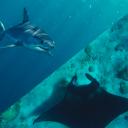 Shark & Ray Protection
Shark & Ray Protection
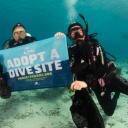 Adopt The Blue
Adopt The Blue


